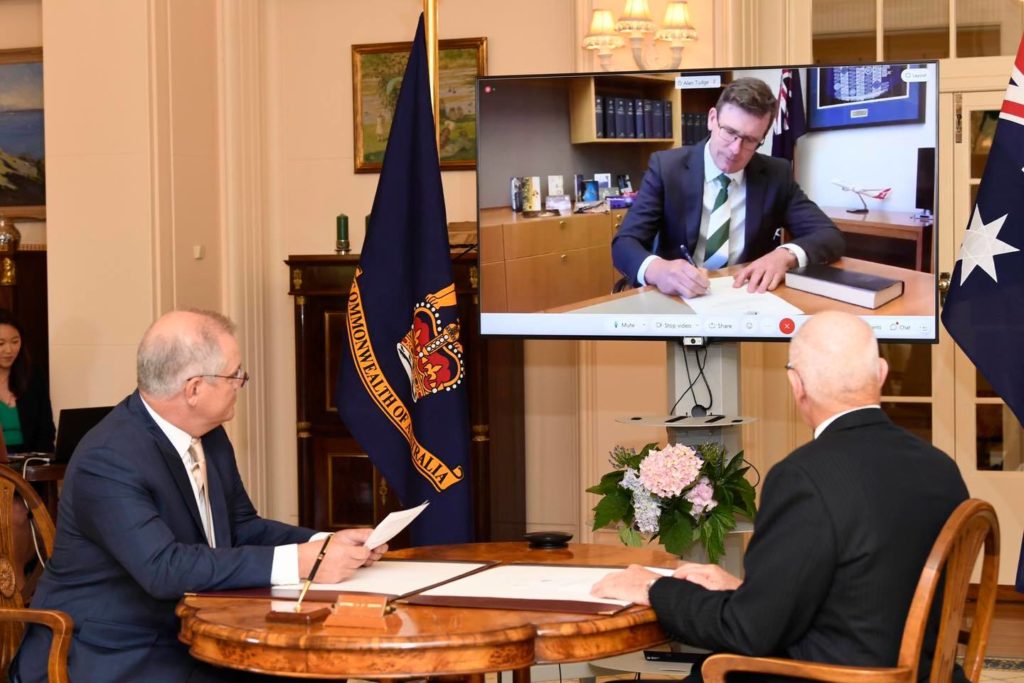In April last year the Prime Minister and the Education Minister made the jaw-droppingly unlikely announcement that early childhood education and care would be free for parents in Australia during the coronavirus pandemic.
“This virus is going to take enough from Australians without putting Australian parents in that position of having to choose between the economic wellbeing of their family or the care, support and education of their children,” Scott Morrison said.
Hearing the Prime Minister utter those words felt monumental.
The fee-free arrangement wasn’t perfect; while it delivered extraordinary and welcome financial relief for families, it placed financial pressure on providers and educators. It ran for just under 3 months but nonetheless the arrangement was historic.
The PM recognising the full and crucial role that early childhood education and care fulfils for children and parents, as well as the community and economy, was groundbreaking. Hallelujah, was the word that sprang to mind as I watched the press conference, agog. Closely followed by, FINALLY!
It was only short-lived but the radical arrangement, very helpfully, proved that it is possible to move quickly when necessary. And moving quickly was necessary.
Parents were pulling children out of early learning and care services in record numbers due to both sudden job and income losses, as well as health concerns in the face of this virus. Services were left flailing, unable to continue operating as usual with children leaving in droves. The Federal government stepped in to help services, educators and families through because it recognised that the early learning and care sector falling apart was not an option.
Which is precisely why the Federal government must step in now to ensure that early childhood education and care in Australia does not fall apart. Without targeted Commonwealth support for early learning and care providers, including Long Day Care, Out-of-School-Hours Care and Family Day Care services, the jobs of too many early educators and the viability of too many services are at risk. We cannot afford to lose a single educator or a single service.
On Thursday night the shadow minister for early childhood education and care Amanda Rishworth and the Opposition Leader, Anthony Albanese, convened a Zoom meeting for providers and educators. More than 100 attended and shared their stories: within 15 minutes it was blisteringly clear that educators and providers in Greater Sydney are close to a breaking point. In other areas it’s headed that way too.
There is the very real fear and stress of contracting covid, the pressure of ensuring children have the continuity of care and education they need, the work of appeasing parents who are struggling to pay fees, as well as the immense financial pressure providers in Greater Sydney are being asked to absorb.
Standing down experienced, beloved, quality educators is not a “solution” any provider wants. And it’s not a “solution” Australia can afford with record staff shortages in early education and care. This is incredibly valuable work.
The Federal government announced short-term relief for families in Greater Sydney by enabling providers to waive the gap fee when children stay at home – but they haven’t mandated it and without support lots of service providers cannot afford to waive fees even when children don’t attend.
Families in South-East Queensland and the Upper Hunter will only be entitled to any fee relief after three full weeks of lockdown.
Thousands of parents in lockdown areas are doing the right thing and keeping their children home in a bid to keep the virus at bay. Having to pay full fees, often hundreds of dollars a week, for early learning and care that their children cannot attend isn’t acceptable.
Last year the Federal government acted quickly to support parents and early childhood education and care providers. In Victoria fees were waived and there was a support package for providers. We are at another crisis point and help is needed urgently.
The Federal government needs to make sure parents are not being penalised for doing the right thing and keeping their children at home. And they need to give providers the financial support required for them to waive the gap fee from the start of a lockdown and to keep educators and staff employed.
Asking services to waive the gap fee means that providers forgo close to half of their revenue, while their costs are increasing to accommodate extra cleaning, extra PPE and leave costs for staff isolating. Many providers are predicting that they will have no choice but to recover the loss of revenue by increasing fees if the government does not give them financial support.
Once again COVID19 is revealing the complexities and flaws in how early education and care is funded in Australia. That families, educators and providers can be pushed to the brink so easily makes clear that it is time for a system to offers universal access to high quality affordable early childhood education and care.


